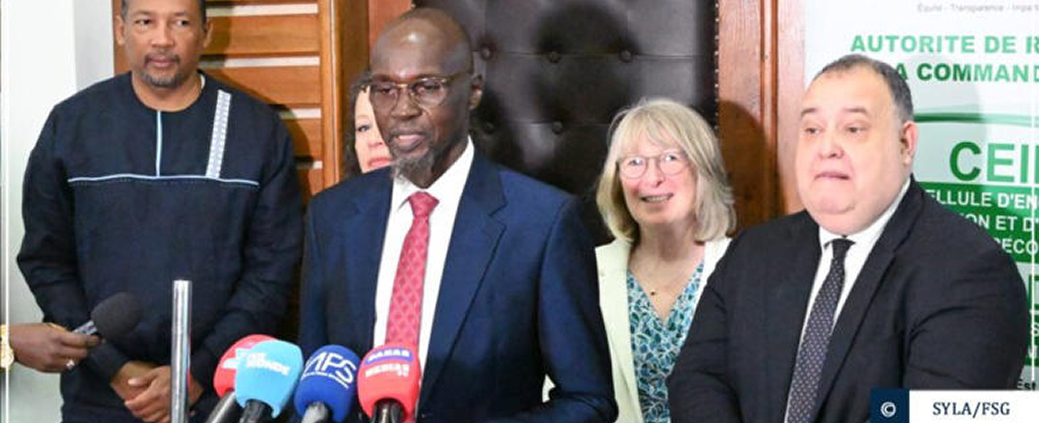Senegal : SUSTAINABLE PUBLIC PROCUREMENT Africa’s move towards green public procurement
A new approach is emerging in global procurement: sustainable public procurement, which takes account of social, economic and environmental aspects. Africa must not be left behind. Hence the training given to experienced public procurement managers from West and Central Africa in Dakar from 22 to 26 April. According to the World Bank, which organized the session, the transition to an effective greening of public procurement in Africa is a crucial challenge for promoting transparency, good governance and sustainable economic development on the continent. This requires far-reaching reforms and strong political will to ensure that public procurement operates fairly, efficiently and responsibly
APA news- The transition towards effective greening of public procurement in Africa is a crucial challenge for promoting transparency, good governance and sustainable economic development
on the continent. This requires far-reaching reforms and a strong political will to ensure that public procurement operates fairly, efficiently and responsibly.
It is against this backdrop that a training workshop on sustainable public procurement opened in Dakar on Tuesday 23 April 2024 for senior public procurement officials from French-speaking countries in West and Central Africa. The aim is to introduce them to the principles of sustainable public procurement and equip them with the skills, tools and knowledge to put this learning into practice.
“This training program is structured around the purchasing cycle, starting with the definition of requirements and continuing through to the preparation of tender documents, the development of
specifications, the integration of sustainability criteria into specifications, and finally the management of contracts to guarantee and evaluate the environmental impact of project execution”, explained Rana Rizkallah from Merrill Solutions, a consultancy specializing in sustainable purchasing, who was in charge of the training.
According to Pierre Xavier Bonneau, Director of Operations for the World Bank in Senegal, “sustainable public procurement transcends the idea of a mere slogan or fashionable concept; it is becoming a key principle of governance”.
He went on to say that “it is our responsibility, particularly in the French-speaking countries of West and Central Africa, to set an example by integrating sustainable development into our procurement practices”. “Our objectives are simple: to understand the rules and procedures governing ODA, to enhance our theoretical and practical skills, and to effectively integrate sustainability principles into our public procurement processes”, he added.
In West Africa, public procurement accounts for around 11.5% of the GDP of the countries in the subregion, representing a total of around 80 billion dollars spent each year on goods, services and works, according to Open Contracting. Spent wisely, they represent an important economic lever for ensuring social well-being and sustainable economic growth,” emphasizes Mr Bonneau, adding that over the past decade, governments have increasingly recognized the potential of public procurement as a strategic catalyst for economic growth and social well-being.
That’s why “this training is about more than just learning; it’s about preparing ourselves to make positive changes to our organizations and our communities. Sustainable public procurement is at the heart of environmental, social and economic progress. Over the next few days, we’ll be talking about the importance of sustainable procurement, the practical steps you can take and the tools you can use to make it a reality,” he said.
Mr Saër Niang, Director General of the Public Procurement Regulatory Authority (ARCOP), recalled that in the past, public procurement in Africa was much more focused on the administrative and legal dimension, in order to ensure the necessary rules of transparency and conditions of equal access to this market. It is only natural that the environmental issue should be taken into account, since it is “a threat that countries are facing”.
“Today, the concept of sustainability in public procurement makes it possible to ensure that environmental issues are integrated into ODA, but also to take better care of vulnerable groups,” said Mr Niang. He welcomed the World Bank’s initiative, pointing out that Senegal’s new Public Procurement Code now requires contracting authorities to make environmentally friendly purchases and use techniques that reduce the harmful impact on the environment.
ARD/te/APA




